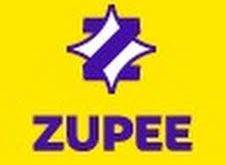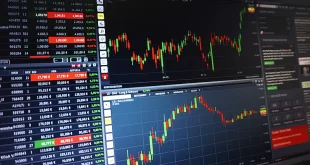From its modest beginning as an open outcry floor trading exchange in the late 1800s to becoming only the second country after China to start the process of transitioning to a T+1 equity settlement mechanism in 2022, the Indian stock market has come a long way to emerge as one of the largest market ecosystems in the world. Undoubtedly, technology has been the key driver of the dramatic transformation in the brokerage industry.
Thanks to technological advancements, the stock market is no longer limited to wealthy individuals. Anyone with a smartphone and access to the internet can buy and sell stocks online from the comfort of their homes. This has democratised the process of investing in stocks and contributed to the economy’s growth.
The introduction of electronic trading in the mid-1990s and SEBI’s decision to legalise Direct Market Access (DMA) in 2009 were the two most significant milestones in the Indian stock markets’ revolutionary journey. This had further opened doors for technology innovation to enable brokers and clients to use Electronic and automated trading and to reduce manual errors.
Today, stockbrokers use cutting-edge technology to offer a suite of services that can save investors time and money. For example, they can provide real-time quotes, allow you to place trades online without having to depend on your brokers to physically lock-in your orders, and offer research and analysis tools. Automation of processes, improved market information, better client communication and enhanced security to protect client data, have helped the stockbrokers meet current business challenges. Adhaar-based e-KYC has facilitated a fast, paperless account opening process, and UPI has made the process of fund transfer to brokerage accounts much faster.
During Covid-19, these systems were put to test, and the stock exchanges and their trading systems demonstrated tremendous robustness and reliability. BSE, for instance, provided several broking technology solutions to all its members as order routing platforms. BOLTPlus On Web™ (BOW) is one such powerful hosted real-time trading solution provided by BSE Tech Infra Services Pvt Ltd. A lot of trading members, who worked from home, were fully functional due to its meticulous system design, scalability, simple user interface, ease of access with limited infrastructure and support from BSE.
As part of its ecosystem, BSE enables 1,300+ brokers with over 100,000 branches, to enable trading for over 11 crore investors on its platform. The sheer volume of transactions requires seamless, error-free performance. The BOW platform allows the user to watch real-time market prices and execute orders on multiple exchanges (BSE, NSE, MCX and NCDEX) instantaneously with real-time price streaming, risk management from a single window.
The BOW services ensures that all members, especially small-sized members, remain connected and trade seamlessly with latest technology at no cost. This enables members to continue to focus on their business expansion plans being assured of technical support from BOW. Going forward, BSE will continue to handhold trading members for business continuity via BOW.
The BOW platform will also enable BSE to offer trading in Electronic Gold Receipt (EGR), which the Indian regulators have permitted for trading. EGRs have been made “fungible” and “interoperability between vault managers” have been allowed. The BOW platform will thus enable ordinary Indians to easily transact and invest in Gold.
The way ahead
There is also continuous innovation in motion, as BSE understands that an important factor for a trading solution is to provide business innovation combined with greater efficiency, speed of execution and reduction in costs. At BSE, we believe in setting an example of how a centuries-old organisation can meet today’s business challenges through an acute focus on technology innovation. BSE has plans to enhance BOW based on market needs, and innovation around speed, capacity, and flexibility – the Capacity to take care of the increased volumes, speed to reduce latency and flexibility to be able to integrate trading across asset classes and across markets.
BY: Sameer Patil – Chief Business Officer, BSE
 Newspatrolling.com News cum Content Syndication Portal Online
Newspatrolling.com News cum Content Syndication Portal Online






